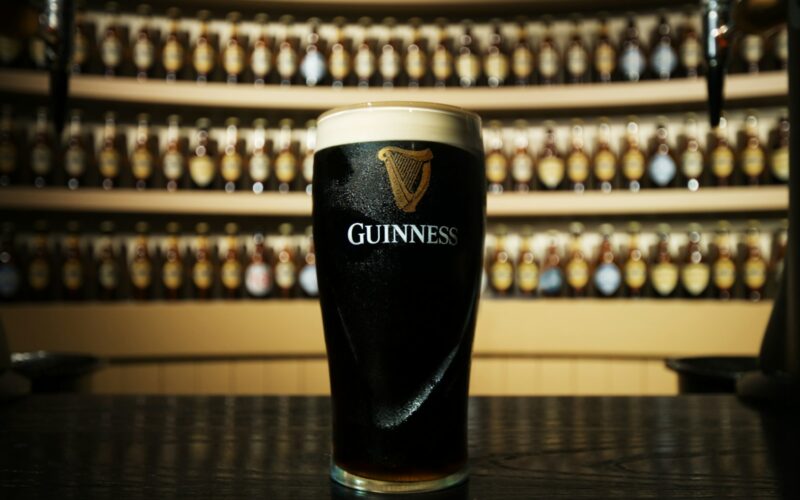A shortage of Guinness hitting pubs across the UK this festive season is sparking fears of reduced footfall and revenue at a time when landlords are already grappling with rising rents and tougher market conditions.
While not an immediate property crisis, any sustained dip in trade could impact the viability and value of these hospitality spaces, say industry observers.
Pub owners argue that with Guinness in short supply, customers may turn away, potentially affecting the profitability of their premises—an issue all too familiar in a property sector where steady cash flow can bolster property values.
During a climate of heightened interest in commercial assets and mixed-use developments, strong tenant performance is a key part of maintaining or increasing the worth of these properties.
‘Crippling’ shortages spark concern
“If I can’t get it in it will probably cripple me.” That’s the stark warning from Steven Crosbie, landlord of the Liffey in Liverpool, whose weekly delivery of Guinness barrels has shrunk from 12 to just one!
Guinness is the pub’s top seller, and without a stable supply of their best-performing product, a steady stream of patrons—and by extension, the underlying asset value of the property—could be at risk.
Many UK landlords are voicing similar concerns. With the property market still adjusting post-pandemic, weakened trading conditions in pubs can erode tenant stability. Reduced custom can mean more difficulty meeting rental obligations, potentially affecting property yields.
Allocation limits and increased demand
In a bid to ration stock and meet demand over the Christmas period, distributors have imposed allocation limits. According to Diageo, Guinness’s parent company, “Over the past month we have seen exceptional consumer demand for Guinness in GB. We have maximised supply and we are working proactively with our customers to manage the distribution.”
These short-term shortages highlight a fragile ecosystem—pubs, which are often key community hubs, operate within the broader property landscape.
If pubs fail to secure their main draws, the knock-on effect on footfall and turnover can lead to questions over long-term viability.
Owners who hold these properties may see their investments impacted if tenants struggle to pay rent or maintain profitability.
London landlords feeling the pinch
Enda Murray, landlord of three pubs in London, says his supplier has restricted his Guinness allocation to just 10% of what he needs. He, along with other landlords, has been scrambling to secure additional supplies.
High demand pubs are cornerstones of local high streets, contributing to the overall attractiveness—and thus valuation—of mixed-use property portfolios. Any slump could have far-reaching implications, not only for operators but also for investors and developers banking on vibrant hospitality scenes.
Shaun Jenkinson, operations manager at Katie O’Brien’s, is unsure if their seven Irish pubs will have enough Guinness to last the weekend. The spectre of running out mid-festive season is troubling given that busy trading periods support the rental and capital values of such premises.
Searching for alternatives in a competitive market
Patrick Fitzsimons, landlord of the Faltering Fullback in Finsbury Park, London, notes that “panic buying” has exacerbated shortages. His small cellar limits his ability to stockpile, adding complexity in a market where adaptability helps maintain steady revenues.
With Guinness so integral to the pub’s allure, property owners will be watching closely to see if customers move elsewhere. A drop in footfall or tenant profitability can lead to renegotiations on leases, impacting the property’s standing as a lucrative commercial investment.
Alternatives like Murphy’s have also faced rationing. Enda Murray points out, “Guinness has a very niche market,” making substitution challenging. This is a reminder that in property investment, the performance of anchor tenants—pubs prominently among them—depends on reliable supply chains.
Heightened demand and cultural trends
Guinness sales surged by more than a fifth between July and October 2024, according to CGA data. Landlords note that younger demographics are increasingly interested in trying Guinness, spurred on by online trends like “splitting the G”.
This cultural momentum has underpinned robust sales and, in turn, solid trading performance—an asset when seeking to maintain or boost the property’s value.
However, a sudden disruption in the supply of a key product could cool this enthusiasm. For property owners, maintaining steady demand for their tenants’ offerings is crucial. Should shortages persist, it could influence how potential investors perceive the attractiveness and resilience of hospitality assets.
‘Hopefully customers will realise there’s more than just Guinness’
With festive celebrations approaching, any significant disruption during a prime trading period can have a ripple effect. Pubs without Guinness risk customers bar-hopping until they find a steady pint, eroding the unique selling point of particular venues.
Yet, some landlords remain unfazed. Ashley English at the Kings Head in Docklow, Herefordshire, isn’t worried, while Bryan Fitzsimons of Skehans in Nunhead, London, has multiple suppliers and prepared in advance. Such resilience can safeguard turnover and, by extension, the property’s income-generating potential.
For those unable to secure Guinness, alternatives like Camden Stout might fill the gap. As Patrick Fitzsimons says, “Hopefully customers will realise that there’s more than just Guinness on the market.”
Diversifying product offerings may well help pubs maintain appeal and financial health, ultimately reinforcing their position in the property landscape.
Could this be a not-so-merry trading month?
While at first glance a Guinness shortage seems a mere hiccup in the drinks trade, it carries deeper implications for the property world. Robust footfall, stable tenants, and strong revenues remain critical to maintaining the value and appeal of commercial real estate.
As the festive period looms, how pubs manage this supply challenge could well have a lasting impact, not just on their own balance sheets, but on the broader property markets they inhabit.




